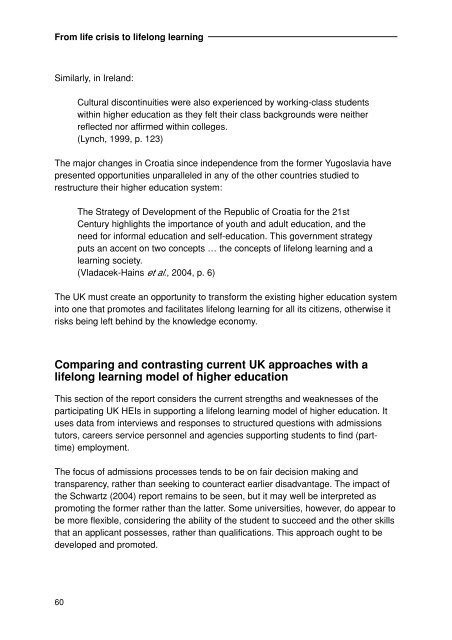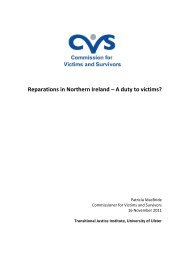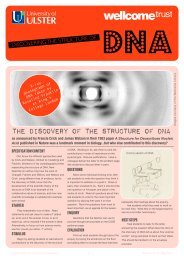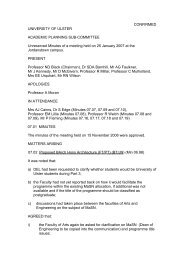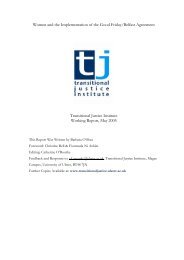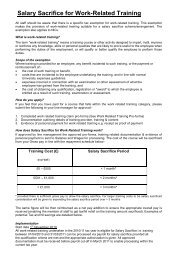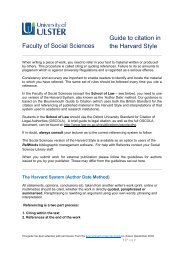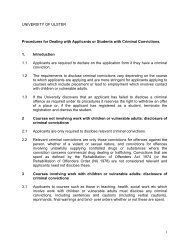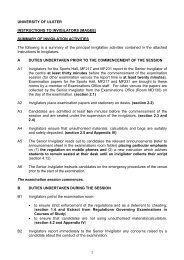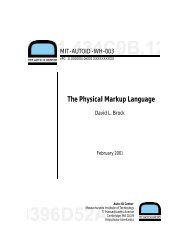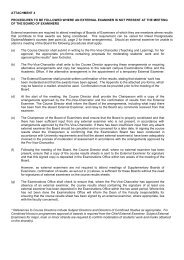From life crisis to lifelong learning: Rethinking working-class 'drop out'
From life crisis to lifelong learning: Rethinking working-class 'drop out'
From life crisis to lifelong learning: Rethinking working-class 'drop out'
Create successful ePaper yourself
Turn your PDF publications into a flip-book with our unique Google optimized e-Paper software.
<strong>From</strong> <strong>life</strong> <strong>crisis</strong> <strong>to</strong> <strong>life</strong>long <strong>learning</strong><br />
Similarly, in Ireland:<br />
60<br />
Cultural discontinuities were also experienced by <strong>working</strong>-<strong>class</strong> students<br />
within higher education as they felt their <strong>class</strong> backgrounds were neither<br />
reflected nor affirmed within colleges.<br />
(Lynch, 1999, p. 123)<br />
The major changes in Croatia since independence from the former Yugoslavia have<br />
presented opportunities unparalleled in any of the other countries studied <strong>to</strong><br />
restructure their higher education system:<br />
The Strategy of Development of the Republic of Croatia for the 21st<br />
Century highlights the importance of youth and adult education, and the<br />
need for informal education and self-education. This government strategy<br />
puts an accent on two concepts … the concepts of <strong>life</strong>long <strong>learning</strong> and a<br />
<strong>learning</strong> society.<br />
(Vladacek-Hains et al., 2004, p. 6)<br />
The UK must create an opportunity <strong>to</strong> transform the existing higher education system<br />
in<strong>to</strong> one that promotes and facilitates <strong>life</strong>long <strong>learning</strong> for all its citizens, otherwise it<br />
risks being left behind by the knowledge economy.<br />
Comparing and contrasting current UK approaches with a<br />
<strong>life</strong>long <strong>learning</strong> model of higher education<br />
This section of the report considers the current strengths and weaknesses of the<br />
participating UK HEIs in supporting a <strong>life</strong>long <strong>learning</strong> model of higher education. It<br />
uses data from interviews and responses <strong>to</strong> structured questions with admissions<br />
tu<strong>to</strong>rs, careers service personnel and agencies supporting students <strong>to</strong> find (parttime)<br />
employment.<br />
The focus of admissions processes tends <strong>to</strong> be on fair decision making and<br />
transparency, rather than seeking <strong>to</strong> counteract earlier disadvantage. The impact of<br />
the Schwartz (2004) report remains <strong>to</strong> be seen, but it may well be interpreted as<br />
promoting the former rather than the latter. Some universities, however, do appear <strong>to</strong><br />
be more flexible, considering the ability of the student <strong>to</strong> succeed and the other skills<br />
that an applicant possesses, rather than qualifications. This approach ought <strong>to</strong> be<br />
developed and promoted.


